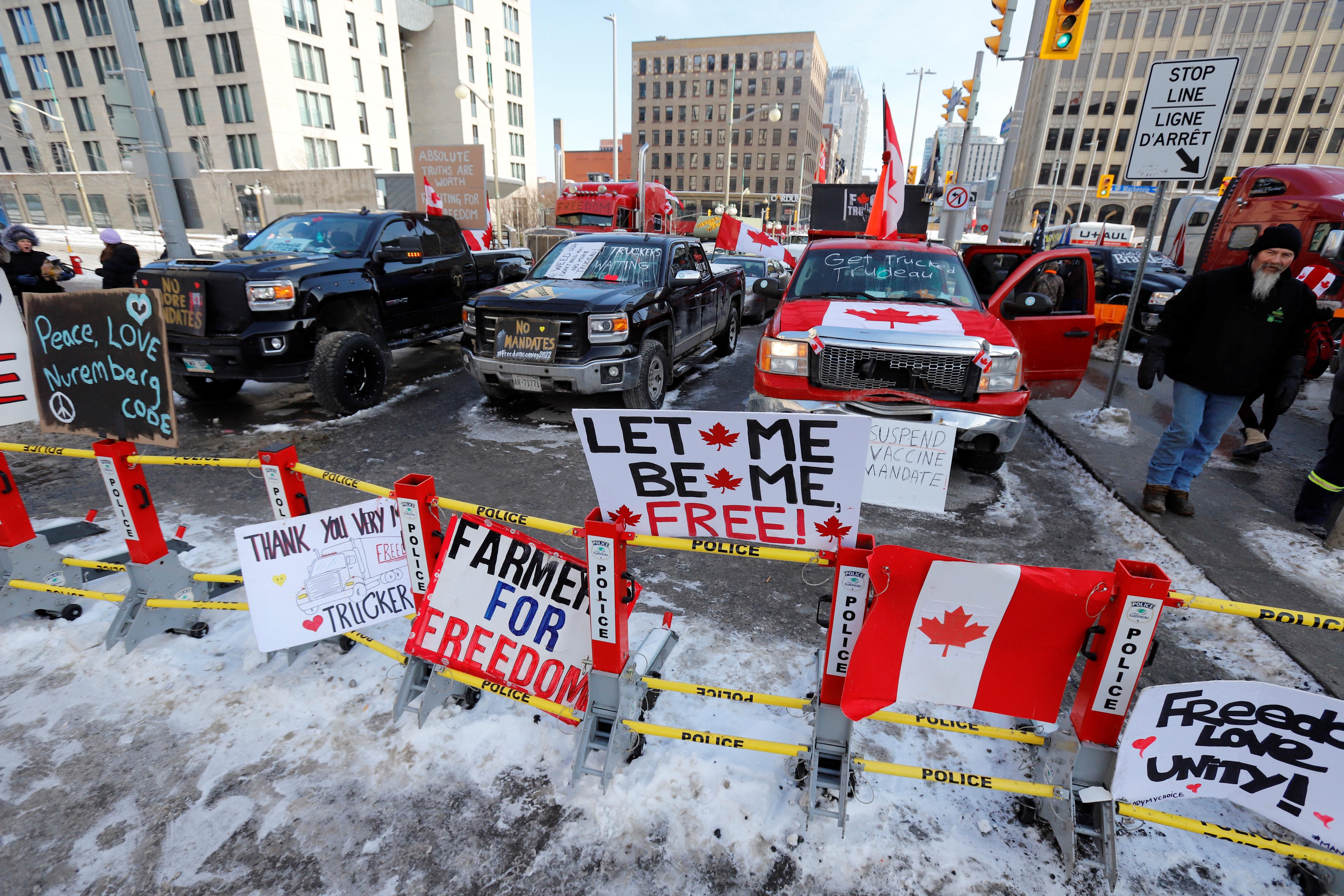What We’re Watching: Truckers take Ottawa, Iran nuclear deal 'final stage,' Israeli spying scandal, Turkey-Greece disco row
Ottawa “out of control.” Is Washington next? Hundreds of Canadian truckers angry about vaccine mandates have paralyzed the country’s capital for more than a week, blocking roads, blaring horns, and demanding an end to pandemic restrictions. City officials have now declared a state of emergency, with the mayor admitting the situation is “out of control.” While the provincial government in Alberta has pledged to lift all restrictions in response to local sympathy protests, Prime Minister Justin Trudeau has refused to meet with the truckers. Meanwhile, his Conservative opponents are split on whether to support the truckers. Recent polls show that only about 30% of Canadians sympathize with the protests, but the cause has attracted global attention and lots of cash: a GoFundMe campaign raised some $8 million before being shut down. Meanwhile, US truckers are planning to descend on Washington, DC, with a similar convoy next month. Given the shortage of truckers and rising consumer prices, will protesting truckers be seen as freedom fighters or be blamed for shortages of vegetables?
Iran nuclear pact: breakthrough or breakdown? The eighth and likely final stage of Iran nuclear negotiations kicks off Tuesday in Geneva. The long-stalled talks halted (again) last week as diplomats from China, Russia, the UK, France, and Germany flew home to brief their respective governments on the progress. Some experts believe a return to the nuclear deal, which was abandoned by the Trump administration in 2018, is likely. Why the optimism? Because the US last week agreed to restore some sanction waivers, which means foreign companies working with Iran on civilian nuclear projects would be exempt from economic penalties. Still, disagreements remain: Tehran refuses to negotiate directly with Washington, for example, and wants the restoration of all sanction relief promised under the 2015 deal. Critics say the window for reaching an agreement has closed because Iran is just weeks away from amassing enough material to build a nuclear bomb. Israeli PM Naftali Bennett, meanwhile, warned that Israel could still launch a military strike against Iran even if the negotiating countries recommit to the nuclear deal.
Israeli spying scandal. Israel’s government has vowed to investigate new bombshell claims that the police used spyware to hack activists, civil servants, politicians, and other high-profile public figures, including witnesses in the ongoing corruption trial of former PM Benjamin Netanyahu. Pegasus software, developed by the Israeli firm NSO, has been the target of much scrutiny in recent months after it was revealed that several authoritarian governments bought the software – with the permission of Israel’s Defense Ministry – to crack down on dissidents and political opponents. (Pegasus has since been blacklisted in the US.) PM Naftali Bennett said Monday that the allegations were very serious and will be thoroughly investigated. Still, some Israelis fear that Netanyahu, who was ousted last year, might use the revelation to stall his corruption trial. Bibi’s son (also a hacking victim) and lawyers have already launched such a campaign.
What We’re Listening To
Funky town controversy in Turkey. The latest spat between Turkey and Greece doesn’t center on the usual issues, such as Cyprus, gas drilling rights in the Mediterranean, or the endless debate about who really invented yogurt. This time it’s about a disco party held at a former Orthodox Monastery in Eastern Turkey. Although the 4th-century cliffside Sumela complex lost its religious function a hundred years ago when ethnic Greeks were expelled from the new Turkish Republic, it’s a popular destination for Greek Orthodox pilgrims. Athens has protested, saying that social media clips of the party are “offensive” and a “desecration.” Come on, Turkey and Greece – can’t we all just join hands and start a love train?
